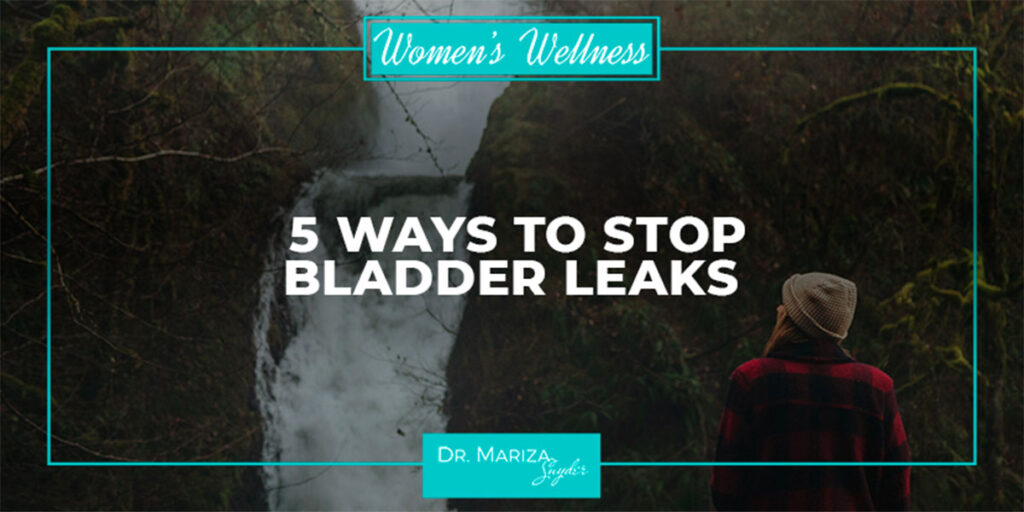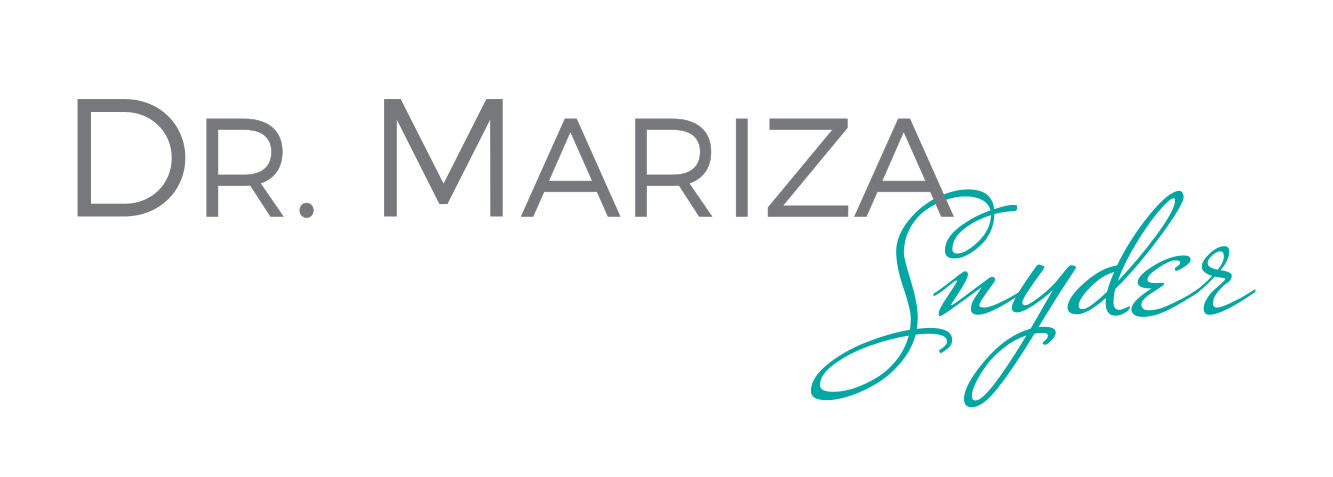
If you find yourself crossing your legs out of instinct when you laugh or sneeze…
Or if you hold back from doing some fun things because you’re afraid an embarrassing leak may stop you in your tracks…
Or if you avoid intimacy out of fear of leaking at the worst moment possible…
You aren’t alone. But, contrary to what your doctor may tell you, you do not have to suffer in silence.
If you’ve ever been to a doctor and been told that leaks are “just a part of getting older,” and felt devastated, embarrassed, or afraid that this is the rest of your life…
I want you to know that there IS a better way.
Crossing the threshold to menopause does not automatically mean that you need to be miserable. You have the power to live the life of your dreams, without embarrassing or annoying symptoms, through your 50s, 60s, and beyond!
Bladder leaks are frustrating and absolutely affect the quality of your life, relationships, and sleep. But there’s more to the picture than you may think.
Let’s dive into the types of bladder leaks that are most common in perimenopause and menopause, why they happen, and exactly what you can do to stop bladder leaks from stealing your joy!
STRESS VS. URGE INCONTINENCE
Bladder leaks fall into two main categories: stress and urge incontinence.
Stress incontinence is caused by anything that physically adds extra pressure or strain to your bladder and pelvic muscles (like excess belly fat or vaginal childbirth—even if it was years ago).
Urge incontinence is a sudden, uncontrollable muscle contraction in your bladder that leads to leaking or total emptying.
Most women in menopause are dealing with one or both of these types of leakage, and overactive bladder is the technical diagnosis if you have these leaks or urgers 6-8+ times per day and at least once over night.
WHY DO BLADDER LEAKS HAPPEN IN MENOPAUSE?
Bladder leaks are often only one piece of the pelvic health puzzle during menopause. Often, it is accompanied by vaginal dryness, pelvic pain, or painful sex.
The #1 issue that accelerates pelvic pain and bladder leakage in menopause is declining estrogen levels. Estrogen is a critical piece of your pelvic health, and when your levels naturally dip during this time, your pelvic muscles weaken and your urethra thins, leaving you with less control over your bladder.
Other contributing factors include…
- Vaginal childbirth
- Being overweight, especially in your midsection
- Chronic constipation
- Drinking excess coffee or alcohol
Bladder leaks in menopause are the butt of jokes and on the list of things considered “normal” by many practitioners. But slapping on a panty liner is not the only solution!
Here are some simple, practical tips to get bladder leaks to stop so you can get back to living your life with energy and zest, no holding back:
HOW TO STOP BLADDER LEAKS NATURALLY
#1: Kegels
Kegels and pelvic floor exercises are the best way to maintain your pelvic muscle tone and keep control “down there.”
The muscles involved are those that you would squeeze to suddenly stop the flow of urine. Simply tighten these while lying down, as if you were holding a ball inside your vagina and cannot let it fall. Hold for 3-5 seconds, then relax for 5. Aim for 10 reps at a time. Remember that no other muscle group should tighten—no abs, butt, or thighs. And keep your pelvis down!
Aim for 30-40 kegels each day, and in 3-6 months, you will notice a huge difference in not only leakage and pain, but also in urinary control and some extra fun in the bedroom!
#2: Gentle Exercise and Resistance Training
Building your core, leg, and pelvic muscles through gentle exercise like walking or resistance training will help you stop leaks.
Since excess belly fat puts you at a higher risk of experiencing these embarrassing leaks, maintaining a healthy weight through targeted nutrition and gentle exercise is a critical piece in maintaining your health for the decades to come.
#3: Support Healthy Estrogen Levels Throughout the Transition to Menopause
Estrogen is an essential piece of your health, but it can be tricky to get the balance right—especially during perimenopause. It’s one of the first hormones that starts to change, but it doesn’t just slowly decline over time…
No, it’s more like a loopy, crazy, adrenaline-junky roller coaster ride than a slow, steady descent.
Since estrogen is spiking and dipping so unpredictably, it is absolutely essential to support both healthy estrogen production AND elimination to keep the level where it should be (this will help make sure you don’t end up with too much or too little estrogen in circulation).
Since low estrogen is a primary root cause of pelvic dysfunction and bladder leaks, focusing on these healthy levels will go far beyond band-aid solutions to help prevent the issue in the first place.
The 2 key players for estrogen in perimenopause and menopause are your adrenals and your liver.
Your adrenals take over producing estrogen as your ovaries decline in this function, so their health becomes critical after 40. Then your liver kicks in to help activate the estrogen as well as cycling it out once it has done its duty. Your liver’s detoxification process is crucial to make sure estrogen metabolizes in the correct way (so you don’t end up with too much and have a greater risk of diseases like cancer).
I’ve created targeted adrenal- and liver-support supplements to make supporting healthy estrogen levels easy. Partnering Essentially Whole® Adrenal Love and Essentially Whole® Liver Support Blend with your healthy exercise practices and food choices will enable your estrogen levels to stay in the optimal range throughout your transition to menopause to help keep bladder leaks at bay! You can get them (and my other powerful hormone-support supplements) here >>
#4: Top Supplements for Leaky Bladder
If bladder leaks are disrupting your days (or nights) and you’re ready to take some practical steps that will make a BIG difference, supplements are a great starting point. Here are a few that are easy to find and can address your leaks from the root to get you some relief:
- Magnesium can help prevent the muscle spasms that lead to urge incontinence. Magnesium is an essential mineral for maintaining healthy muscles, reducing inflammation, optimizing estrogen levels, and more. You can get my recommended magnesium supplement HERE.
- Pumpkin Seed Oil has been shown to reduce inflammation and support a healthy bladder. It shows promise as a natural treatment for overactive bladder for women in menopause. (1) You can find pumpkin seed oil supplements at health food stores or online; just make sure you trust your source!
- Vitamin D deficiency can manifest itself as urinary incontinence, as well as a whole host of other symptoms (see them here). A majority of women are deficient in vitamin D to the extent that they will benefit from supplementing, and it’s an essential vitamin for bladder, pelvic, bone, and hormone health. All women over 40 should consider supplementing vitamin D—and you can get the best, most absorbable form HERE!
#5: Get Expert Help (but maybe not at your primary doctor’s office)
Always bring your concerns about your health (including bladder leaks) to your doctor, because they can be signs of bigger issues under the surface. But if your doctor dismisses you or tells you it’s “normal,” it’s up to you to seek help elsewhere!
Chiropractors, acupuncturists, and pelvic floor physical therapists all have methods that can reduce stress incontinence and help you regain bladder control.
If you don’t have one of these specialists in your area, or if you’re not quite ready to seek outside help, you can address pelvic dysfunction, pain, and leakage from the comfort and privacy of your own home with America’s top pelvic healer Isa Herrera. Click here to check out her limited-availability masterclass now!
READY FOR MORE SOLUTIONS TO YOUR BIGGEST DISCOMFORTS?
I promise, I’m not going to gloss over ANYTHING in my newest book, The Essential Oils Menopause Solution. Everything is on the table—including the science behind your worst menopause symptoms that no one else is talking about.
This cutting-edge book will transform how you view menopause and put the power back into your hands to continue living with grace, energy, and vitality for decades to come.
Order The Essential Oils Menopause Solution and Get Over $500 in Bonuses
References:
1. https://www.ncbi.nlm.nih.gov/pmc/articles/PMC3569681/


I’m struggling with hot flashes lately and some heart palpating symptoms. I’m slowly going from peri menopause to menopause. I’m closer now to menopause. I’ve had hot flashes once in awhile nothing major but now I’m getting them everyday and night. I’ve been on natural progesterone since I was 30 I am now 57. Do you feel your hormone product will be ok to take with my cream and if so do you feel I should take this hormone product for my hot flashes. Thanks, Ann
Hi Ann! Absolutely! I’ll attach the link here for more info. https://store.drmariza.com/products/hormone-balance?_pos=1&_sid=d378c62ac&_ss=r